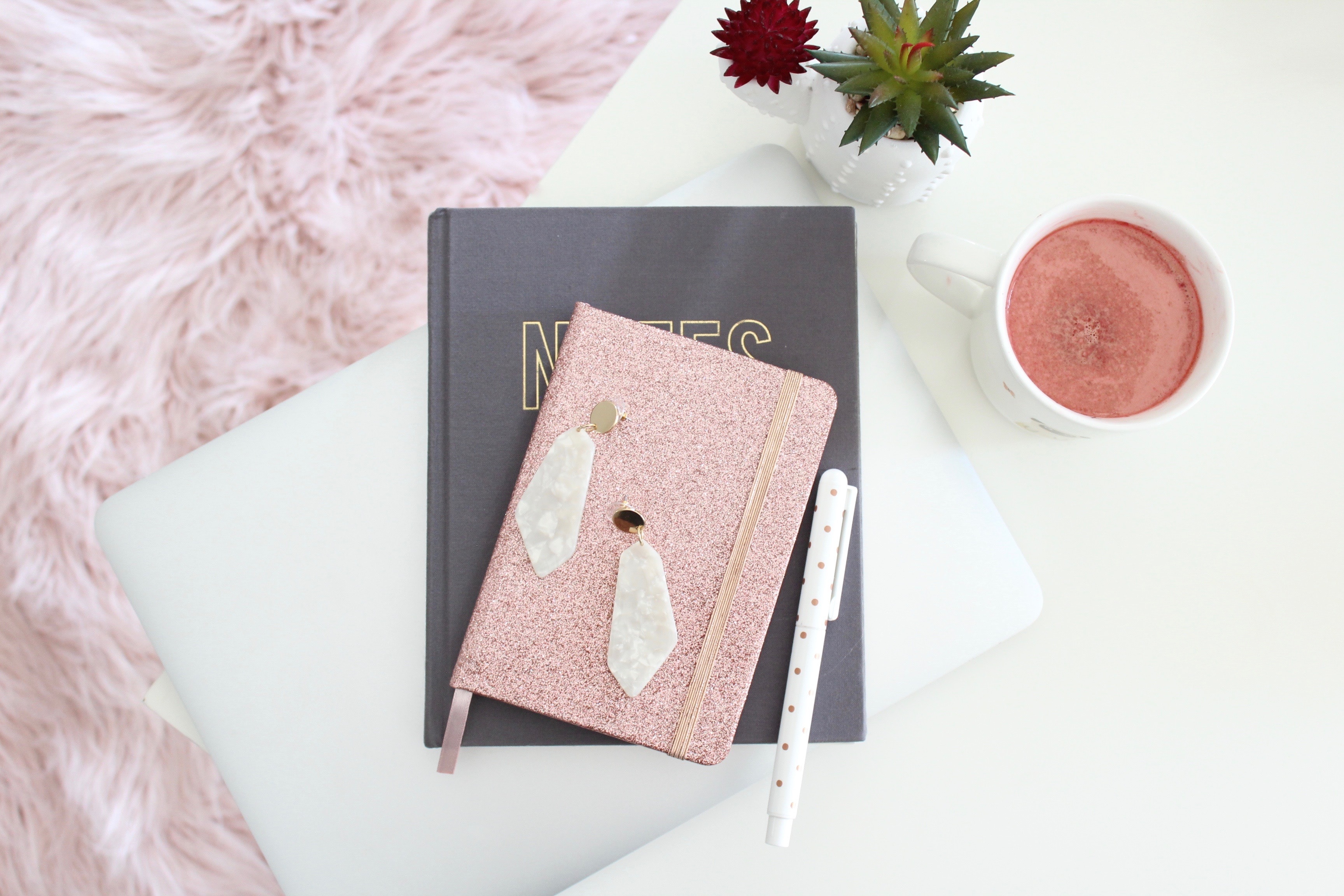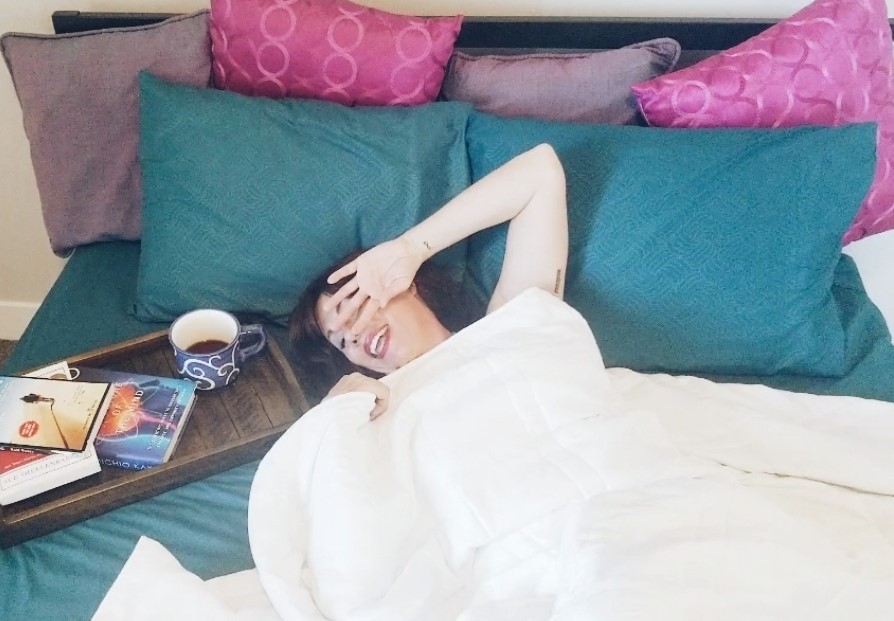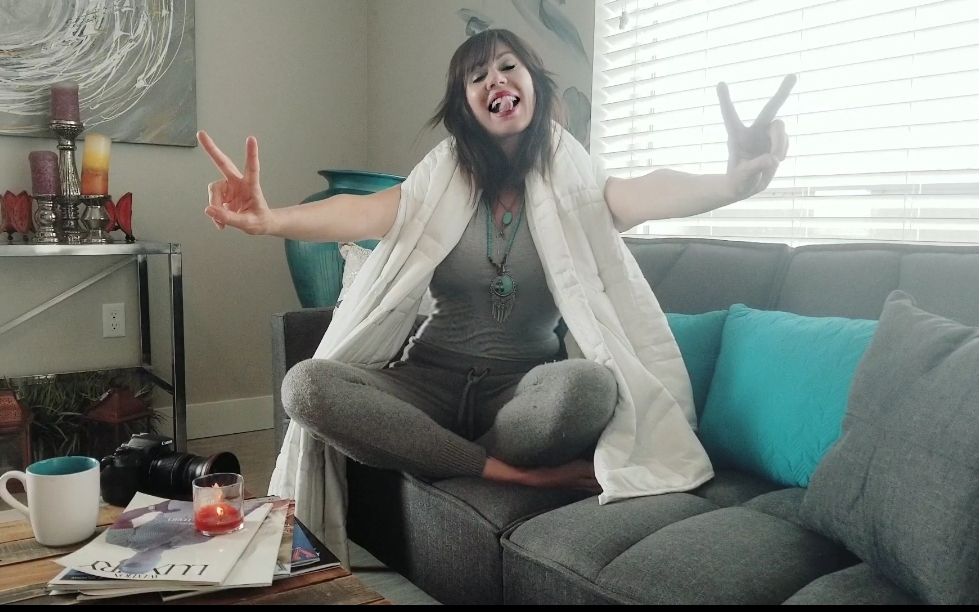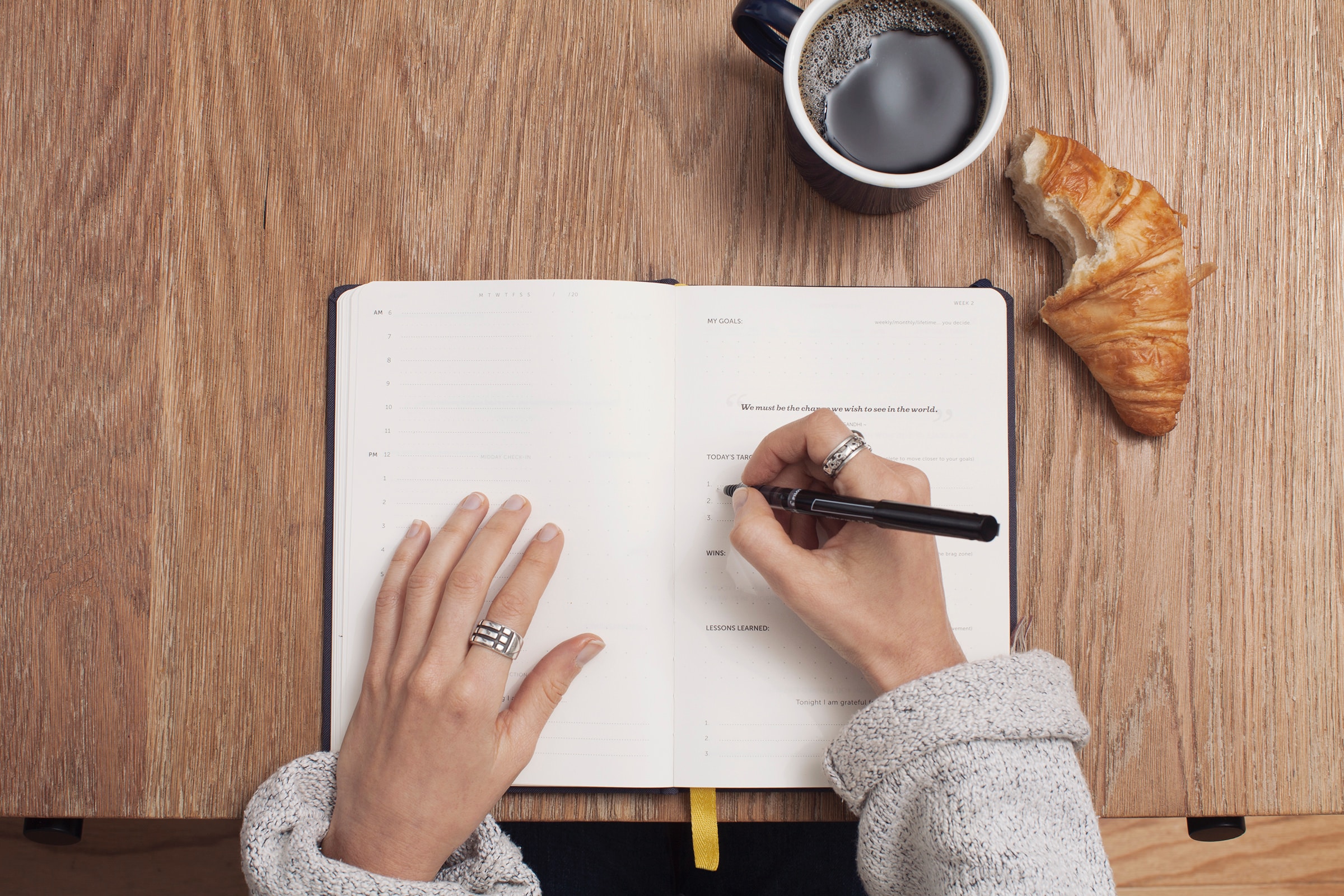Boosting sleep hygiene for better brain-body connection and cognitive function.
Sleep makes us better.When we sleep our bodies and brains are hard at work. Memories are reactivated, brain cells are repaired, connections are strengthened and calories are turned into energy – yes, even when we sleep. It makes sense that not getting enough shut-eye affects our emotions and cognitive brain function.
As a wellness coach I want to find the best therapies for a healthy lifestyle and better sleep. If I’m not focused, I’m not efficient and all areas of my life are affected. “Sleep is really important for clearing toxic metabolic waste products from the brain.” says Laura Lewis of Boston University. O.k., sleep provides me with better health, energy and wellness – but it can also detox my brain? That sounds like something we could all benefit from.
I wanted to know more. So I took a look at how much control I had over my sleep and how much bad sleep was self-inflicted.
Measuring where we’re at and where we want to be is the start to creating healthy habits. Tracking our Z’s with the National Sleep Foundation’s Bedtime Calculator can help us decide upon a beneficial sleep schedule. Adopting good patterns from a sleep diary assists with better cognitive behavioral therapy. And creating the right sleep setting with a few key products can adjust our habits, and dare I say – help enhance our slow brain waves and increase REM sleep. The kind where harmful plaque is scrubbed from our brains and we wake up focused.
“You’re putting energy in the bank when you go to sleep,” says Barry Krakow, M.D. director of Maimonides Sleep Arts and Sciences. “On a cellular level, the body is literally repairing and restoring itself. Without it, you can’t do what you want — physically or mentally.”
A recent Gallup study shows that 67% of employees feel burnout on some level, creating a cascade of negative effects. Loss of sleep is just one of them. I wanted to fill up my sleep bank so I spent a few weeks experimenting with daily habits and testing sleep related products. I found the following made a difference.

“You’re putting energy in the bank when you go to sleep.”
Knowing My Chronotype (Personal Circadian Rhythm)
Good sleep starts long before a perfect bedtime routine, it starts with habits. In the spirit of my new and improved sleep-seeking goals I changed a few things. I decided to use a sleep tracking app, and forego my typical glass of evening wine after finding that every alcoholic drink can disrupt an hour of sleep, further throwing off circadian rhythms.
Do you find that you have a usual time you like to go to bed or feel tired? That’s your chronotype. It can vary from person to person, can change with age, and often runs in families. Knowing how to work with our chronotype makes us more productive, and we can schedule our lives better. My recent look into sleep patterns found 4 chronotypes – natural rhythms – suggested by author and PhD, Michael Breus. These are:
- Wolf – More alert at night, and struggle to wake up.
- Lion – Wake early, alert in the morning, but feel an afternoon crash and are drained.
- Bear – Follow the solar cycle. Awake in daylight, asleep at night, and need 8 hours of sleep.
- Dolphin – Anxious, insomniac, and have trouble shutting off their brain. Usually don’t get a good night’s rest.
I’m a lion. This reiterates my “lioness” abilities to focus best in the morning and re-group with an afternoon break. While simple, sticking with our natural rhythms allows us to function best. Trying to follow someone else’s chronotype can cause havoc to our sleep and our emotions. Owning our chronotype is like a little hack for our body’s natural clock.

Weighted Therapy Blankets
Not everyone agrees on the benefits of a weighted blanket as a sleep tool and more in depth scientific backing is being explored. “Weighted blankets have been around for a long time, especially for kids with autism or behavioral disturbances,” says Dr. Cristina Cusin, assistant professor of psychiatry at Harvard Medical School.
The idea behind weighted blankets started with deep pressure touch to relax patients and calm those with sensory overload. These therapy blankets act like a gentle hug or swaddling to calm a baby. I tried one myself, and found the weight comforting. It’s hard to say if the weighted pressure was what kept me wanting to stay burrowed in bed and curse getting up, but I don’t think it was a coincidence. With the 15 lb. blanket, I woke in a similar position, had more prolonged sleep rather than my typical intermittent sleep, and returned to my 5:30 a.m. workout classes refreshed.
Now that weighted – gravity – blankets are mainstream the discussion is growing about their wellness benefits, their use in occupational therapy, sleep therapy, self-care, and boosting serotonin. As someone who works in wellness, that’s good news. These are the conversations I thrive on. Sleep is one of our greatest health tools, so if a weighted blanket can act as an anxiety-reducing mild sedative, it’s one I’m going to keep in my sleep toolkit.
All blankets are not created equal though. I pay attention to small micro-plastic fiber pollution and wanted something that’s healthy to both me and the environment. That’s where the Baloo brand, comes in. An eco-friendly weighted blanket that uses premium cotton and lead free glass microbeads to soothe. Elizabeth Grojean, CEO of Baloo weighted blankets says “Baloo as a brand, stands for respect for the body’s innate wisdom and self-healing ability.” I’m an advocate for that. As a matter of fact my weighted blanket is swathed around my shoulders as I write this.

“Baloo stands for respect for the body’s innate wisdom and self-healing ability.”
Sleep Tracking App
I could have used a sleep tracking app several years ago during one of the most stressful periods of my life, personally and professionally. My body was overflowing with cortisol, a steroid hormone that responds to stress or danger. I was essentially a high functioning depressive, feeling the fallout of my body losing its ability to heal itself. Stuck in a loop of sleep deprivation, heightened anxiety, and sapped energy. It was a burn out nightmare. Getting through that stressful period forced an overhaul of my life in every way. Think total house renovation for the self.
Through that process I added more wellness elements to my life, some of them digital. When it comes to sleep-tracking apps my goal was not perfect accuracy – there are sleep clinics for that – but a better understanding of my sleep trends. I wanted a simple solution that would do more than spit out sophisticated graphs, or a sweet sounding alarm.
I used SleepScore, a free smartphone app that doesn’t require wearables or anything on the mattress. It’s thorough enough to see where I need improvement and what habits, like my afternoon caffeine, disrupt my night. SleepScore seems to do a thorough job providing readings for when I slept, how much I sleep and the type of sleep I’ve had.
Overall it helped me become more accountable for my sleep habits with uncomplicated graphs right on my phone and a visual sleep diary easily downloadable from the American Association of Sleep Medicine.
While these are simple sleep solutions they gave me a new appreciation for my personal sleep hygiene and deeper sleep. It’s something I’ll keep experimenting with to improve my alertness, creativity and vitality. Burnout band-aids and temporary solutions will have negative long term effects, including a buildup of brain plaque from lack of sleep that is said to lead to Alzheimer’s. Those are risks I’m not willing to take. Time to set a goal and track it.
As a lion chronotype, I’m now perched on my windowsill wrapped in my Baloo blanket, sipping a chagacinno spiced with turmeric as the sun’s persimmon inks flow into the cotton clouds along the mountain. A moment of serenity before jumping into an active daily life. These small routines are my day, but it really started the night before.
Let us sleep.
Do you have any other products you love that help you sleep better?

